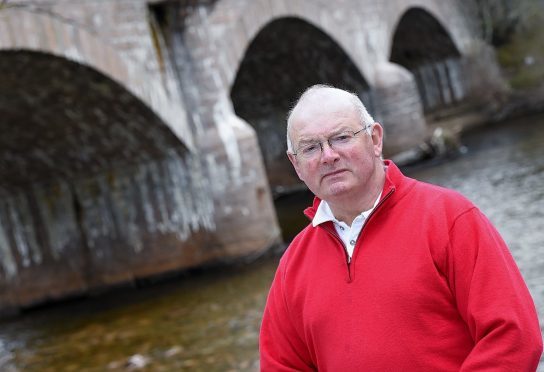A proposal by locals to protect an Aberdeenshire village devastated by recent flooding – through funding their own defences – has won widespread support.
The Ballater Flood Group put forward its plans to raise £1.5million for flood alleviation around the village to a meeting of some 80 local residents.
Tony Cox, co-ordinator of the group, said it had received a “100% mandate” and added that both Aberdeenshire Council and the Scottish Environment Protection Agency (Sepa) had now opened talks with them.
The organisation’s members funded their own hydrology survey of the River Dee which concluded Ballater could be at risk of a further deluge in the autumn.
They hope to get some form of defences funded as soon as possible.
More than 300 homes and 60 businesses were flooded in Ballater on December 30 last year after the Dee burst its banks at the neighbouring golf course.
The Ballater Flood Group is seeking a public-private partnership or private finance initiative with the Scottish Government to put in place “first phase protection” as quick as possible.
If the money is raised, members will launch a planning application for the defences. They have proposed a limited clearance to restore the river and a levee running from Sluivannachie, near the breach point on the golf course, to Ballater’s Royal Bridge.
Ballater resident Mr Cox said: “Our meeting was enthusiastically attended by about 80 people and the bottom line is that we have provoked a response from various authorities who now seem quite keen to work with us, especially as we have got a community mandate to continue.
“The (council) flood team and Sepa are prepared to work with us to identify what options are open to us. We are moving ahead. It is an important breakthrough.
If the scheme is approved, it would be the first project of its kind, but Mr Cox said they “haven’t got a lot of time to deal with it”.
A Sepa spokesman said: “We are happy to consider any proposals from the community and would work with Aberdeenshire Council to provide advice on flood protection works which would benefit the whole community.”
The council’s director of infrastructure services, Stephen Archer, said: “We are happy to discuss any way we can all work together.”
